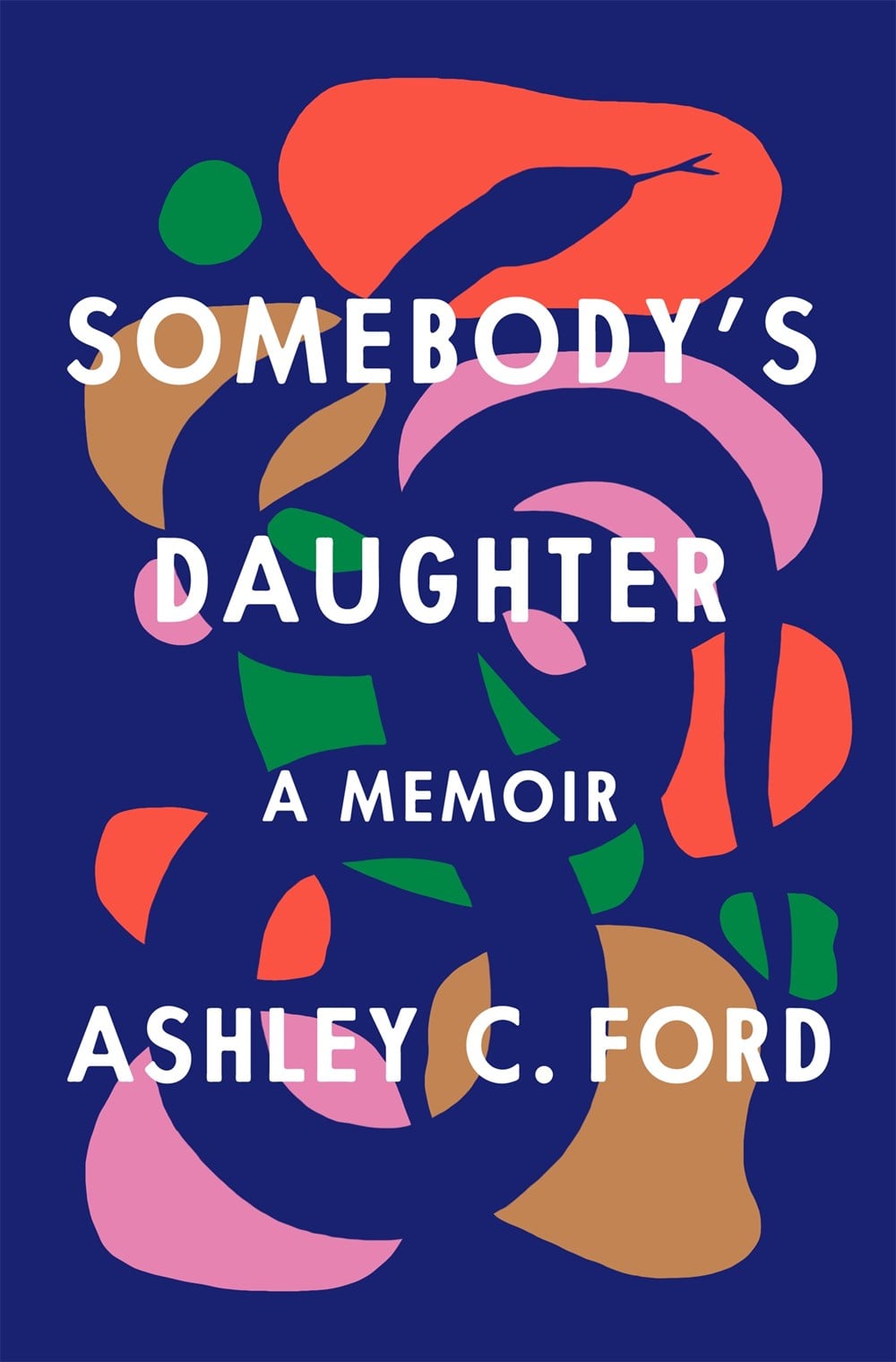
Somebody’s Daughter: A Memoir by Ashley C. Ford
“This is a book people will be talking about forever.” ―Glennon Doyle, #1 New York Times bestselling author of Untamed
“Ford’s wrenchingly brilliant memoir is truly a classic in the making. The writing is so richly observed and so suffused with love and yearning that I kept forgetting to breathe while reading it.” ―John Green, #1 New York Times bestselling author
One of the most prominent voices of her generation debuts with an extraordinarily powerful memoir: the story of a childhood defined by the looming absence of her incarcerated father.
Through poverty, adolescence, and a fraught relationship with her mother, Ashley C. Ford wishes she could turn to her father for hope and encouragement. There are just a few problems: he’s in prison, and she doesn’t know what he did to end up there. She doesn’t know how to deal with the incessant worries that keep her up at night, or how to handle the changes in her body that draw unwanted attention from men. In her search for unconditional love, Ashley begins dating a boy her mother hates. When the relationship turns sour, he assaults her. Still reeling from the rape, which she keeps secret from her family, Ashley desperately searches for meaning in the chaos. Then, her grandmother reveals the truth about her father’s incarceration . . . and Ashley’s entire world is turned upside down.
Somebody’s Daughter steps into the world of growing up a poor Black girl in Indiana with a family fragmented by incarceration, exploring how isolating and complex such a childhood can be. As Ashley battles her body and her environment, she embarks on a powerful journey to find the threads between who she is and what she was born into, and the complicated familial love that often binds them.
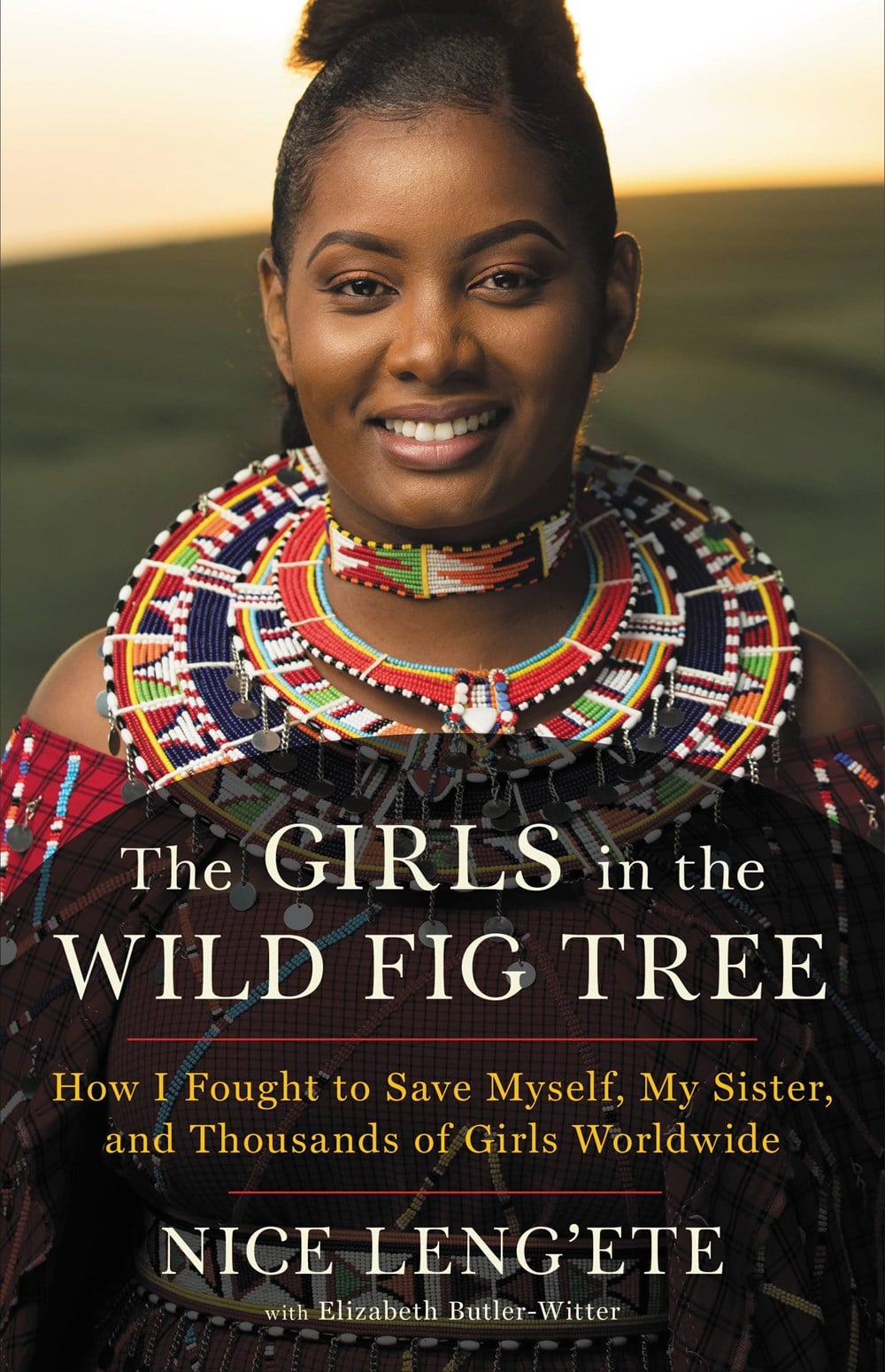
The Girls in the Wild Fig Tree by Nice Leng’ete
An “elegant and inspiring memoir” by the human rights activist who changed the minds of her elders, reformed traditions from the inside, and is creating a better future for girls and women throughout Africa (Sonia Faleiro, New York Times).
Nice Leng`ete was raised in a Maasai village in Kenya. In 1998, when Nice was six, her parents fell sick and died, and Nice and her sister Soila were taken in by their father’s brother, who had little interest in the girls beyond what their dowries might fetch. Fearing “the cut” (female genital mutilation, a painful and sometimes deadly ritualistic surgery), which was the fate of all Maasai women, Nice and Soila climbed a tree to hide.
Nice hoped to find a way to avoid the cut forever, but Soila understood it would be impossible. But maybe if one of the sisters submitted, the other would be spared. After Soila chose to undergo the surgery, sacrificing herself to save Nice, their lives diverged. Soila married, dropped out of school, and had children–all in her teenage years–while Nice postponed receiving the cut, continued her education, and became the first in her family to attend college.
Supported by Amref, Nice used visits home to set an example for what an uncut Maasai woman can achieve. Other women listened, and the elders finally saw the value of intact, educated girls as the way of the future. The village has since ended FGM entirely, and Nice continues the fight to end FGM throughout Africa, and the world.
Nice’s journey from “heartbroken child and community outcast, to leader of the Maasai” is an inspiration and a reminder that one person can change the world–and every girl is worth saving.
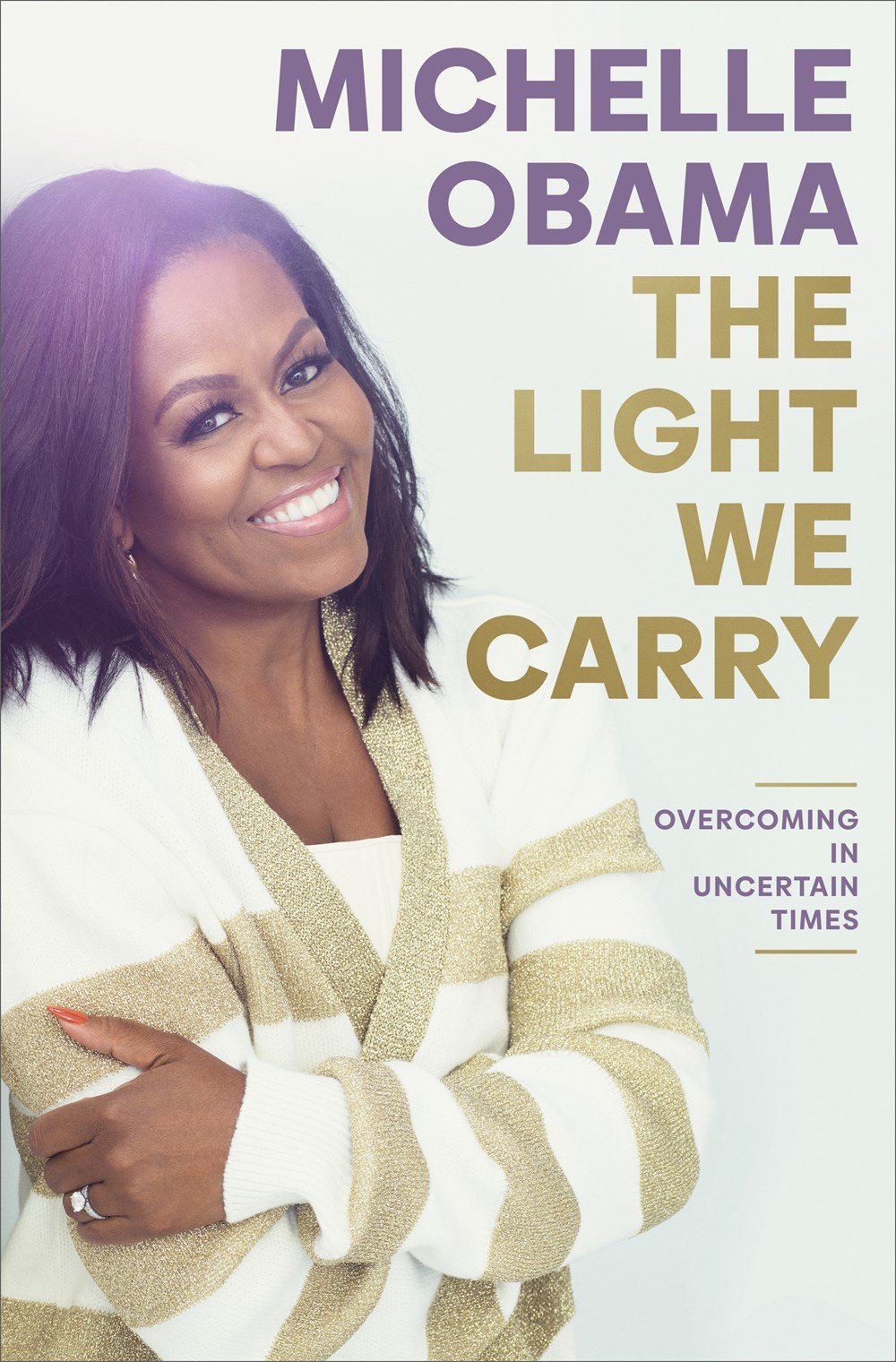
The Light We Carry by Michelle Obama
The Light We Carry: Overcoming in Uncertain Times by Michelle Obama
In an inspiring follow-up to her critically acclaimed, #1 bestselling memoir Becoming, former First Lady Michelle Obama shares practical wisdom and powerful strategies for staying hopeful and balanced in today’s highly uncertain world.
There may be no tidy solutions or pithy answers to life’s big challenges, but Michelle Obama believes that we can all locate and lean on a set of tools to help us better navigate change and remain steady within flux. In The Light We Carry, she opens a frank and honest dialogue with readers, considering the questions many of us wrestle with: How do we build enduring and honest relationships? How can we discover strength and community inside our differences? What tools do we use to address feelings of self-doubt or helplessness? What do we do when it all starts to feel like too much?
Michelle Obama offers readers a series of fresh stories and insightful reflections on change, challenge, and power, including her belief that when we light up for others, we can illuminate the richness and potential of the world around us, discovering deeper truths and new pathways for progress. Drawing from her experiences as a mother, daughter, spouse, friend, and First Lady, she shares the habits and principles she has developed to successfully adapt to change and overcome various obstacles—the earned wisdom that helps her continue to “become.” She details her most valuable practices, like “starting kind,” “going high,” and assembling a “kitchen table” of trusted friends and mentors. With trademark humor, candor, and compassion, she also explores issues connected to race, gender, and visibility, encouraging readers to work through fear, find strength in community, and live with boldness.
“When we are able to recognize our own light, we become empowered to use it,” writes Michelle Obama. A rewarding blend of powerful stories and profound advice that will ignite conversation, The Light We Carry inspires readers to examine their own lives, identify their sources of gladness, and connect meaningfully in a turbulent world.
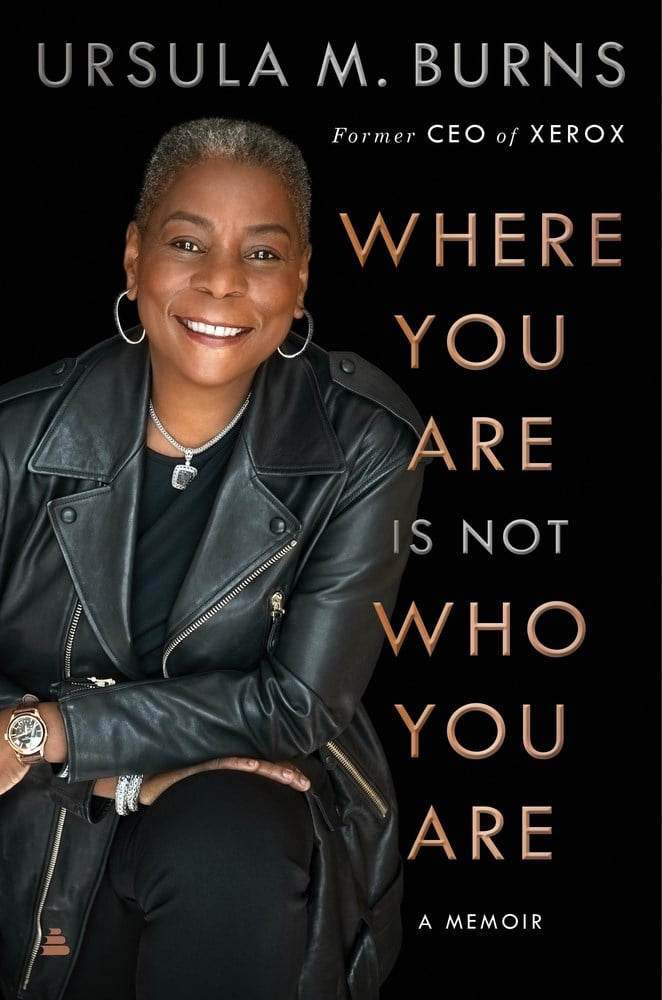
Where You Are Is Not Who You Are: A Memoir by Ursula Burns
The first Black female CEO of a Fortune 500 company looks back at her life and her career at Xerox, sharing unique insights on American business and corporate life, the workers she has always valued, racial and economic justice, how greed is threatening democracy, and the obstacles she’s conquered being Black and a woman.
“I am a black woman, I do not play golf, I do not belong to or go to country clubs, I do not like NASCAR, I do not listen to country music, and I have a masters degree in engineering. I, like a typical New Yorker, speak very fast, with an accent and vernacular that is definitely New York City, definitely Black. So when someone says I’m going to introduce you to the next CEO of Xerox, and the options are lined up against a wall, I would be the first one voted off the island.”
In 2009, when she was appointed the Chief Executive Officer of the Xerox Corporation, Ursula Burns shattered the glass ceiling and made headlines. But the media missed the real story, she insists. “It should have been ‘how did this happen? How did Xerox Corporation produce the first African American woman CEO?’ Not this spectacular story titled, “Oh, my God, a Black woman making it.”
In this smart, no-nonsense book, part memoir and part cultural critique, Burns writes movingly about her journey from tenement housing on Manhattan’s Lower East Side to the highest echelons of the corporate world. She credits her success to her poor single Panamanian mother, Olga Racquel Burns—a licensed child-care provider whose highest annual income was $4,400—who set no limits on what her children could achieve.
Ursula recounts her own dedication to education and hard work, and how she took advantage of the opportunities and social programs created by the Civil Rights and Women’s movements to pursue engineering at Polytechnic Institute of New York.
Burns writes about overcoming the barriers she faced, as well as the challenges and realities of the corporate world. Her classmates and colleagues—almost all white males—“couldn’t comprehend how a Black girl could be as smart, and in some cases, smarter than they were. They made a developed category for me. Unique. Amazing. Spectacular. That way they could accept me.” Her thirty-five-year career at Xerox was all about fixing things, from cutting millions to save the company from bankruptcy to a daring $6 billion acquisition to secure its future. Ursula also worked closely with President Barack Obama as a lead on his STEM initiative and Chair of his Export council, where she traveled with him on an official trade mission to Cuba, and became one of his greatest admirers.
Candid and outspoken, Ursula offers a remarkable look inside the c-suites of corporate America through the eyes of a Black woman—someone who puts humanity over greed and justice over power. She compares the impact of the pandemic to the financial crisis of 2007, condemns how corporate culture is destroying the spirit of democracy, and worries about the workers whose lives are being upended by technology. Empathetic and dedicated, idealistic and pragmatic, Ursula demonstrates that, no matter your circumstances, hard work, grit and a bit of help along the way can change your life—and the world.
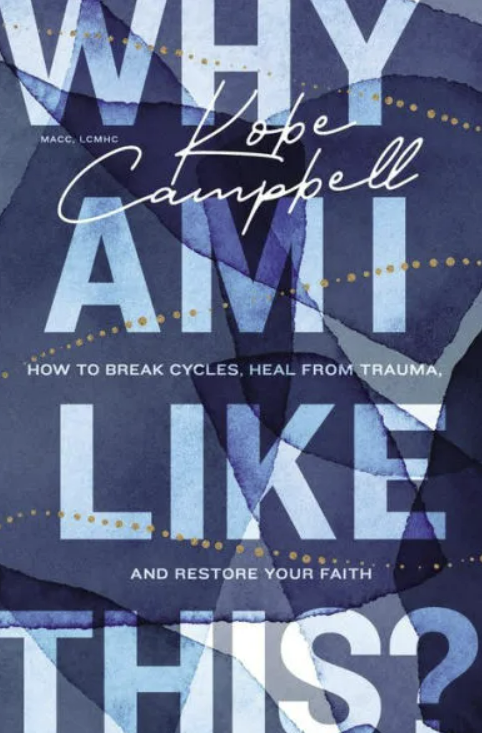
Why Am I Like This by Kobe Campbell
Why Am I Like This?: How to Break Cycles, Heal from Trauma, and Restore Your Faith by Kobe Campbell
Why does our past pain have a way of terrorizing us and keeping us in fear, while baiting us with the lie that we will never experience healing, freedom, or love?
Though many of us can point to patterns of brokenness in our lives, we don’t know why they’re there. No matter how hard we work, we can’t seem to outrun the very things that break our hearts. That’s because our everyday setbacks are rooted in our unaddressed wounds.
Guided by seminary-trained licensed trauma therapist Kobe Campbell, Why Am I Like This? will help you develop courage as you dare to turn your heart toward your brokenness, uncover uncomfortable truths, and learn how to invite God into your past and present pain as you move from the terror of trauma into the tender embrace of the Father.
In the book Why Am I Like This?, you will:
gain an understanding of what trauma and healing really are,
explore the roots of your dysfunctional patterns,
learn how your trauma shows up in your everyday life, and
find trauma-informed, faith-based coping mechanisms to heal your mind and deepen your intimacy with God.
You already know that God is good. Here, you’ll discover that He’s good to you. You already know that God responds to the cry of His children. Here, you’ll see just how he responds to your cries of desperation, hopelessness, and despair. Healing won’t look like what you thought it will be, but it will come, and it will be beautiful.

